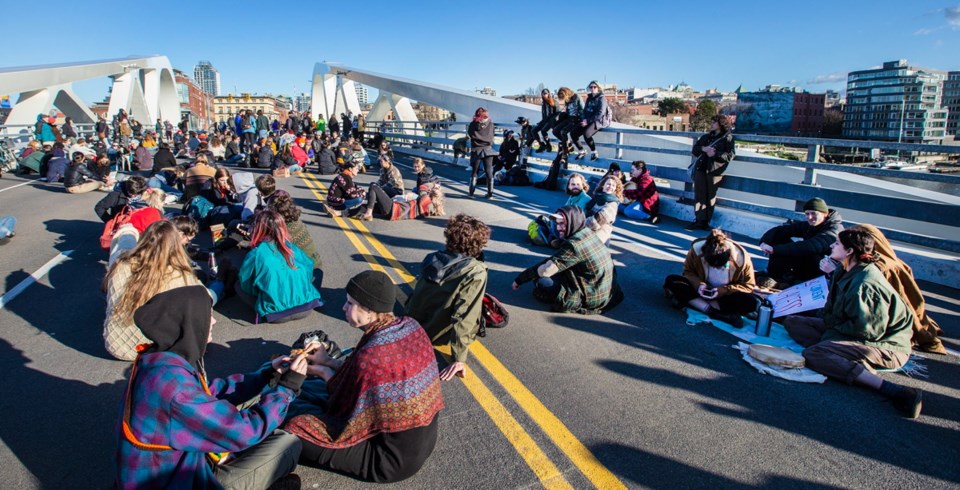A commentary by a former deputy minister under five premiers.
My first protest was BACK MAC in 1963 when as a freshman at the University of British Columbia I marched to support President John B. Macdonald’s report into higher education and against the mean Social Credit Premier W.A.C. Bennett. We marched down the university mall, blocking traffic. That achieved our aims, television coverage, and contributed to changes in policy.
My one and only wildcat strike happened at British IndustroGlass when I was a hitchhiking troubadour in 1966 in London. We went out on the night shift at 3 a.m. protesting the tea was too weak.
It was the time of shop steward government in Britain. There were no labour laws to speak of, and anarchy ruled the workplace. We received no media coverage, this was old hat, and the point was two fingers up to the bastard bosses and no laws to prevent it. We went back the next shift, nothing changed.
I stood inside the legislative buildings the day Operation Solidarity marched, all 50,000 of them in 1983. There were 100,000 marching in Vancouver later that spring. The protests either changed the government’s course marginally or significantly depending on which side you stood.
The marches were peaceful, and both sides respected the right of protest. It is a proud heritage in this province we call home.
When outraged by public policy we vent with our feet in public, joining together in numbers sufficient to bring attention to our grievance.
For example, I never saw a proud protester in days past hiding behind a mask. Stand up and be counted meant just that. Protests weren’t out to bring down governments, or legitimate business or causes, they were out to get the people on their side. To point out injustice. To call for action by gaining more and more supporters. They gained support because they were respectful, non-confrontational and progressive.
Today we watch the protest movement being hijacked, we see it violating others’ rights and trying to provoke outrage.
We are seeing the protest movement drift into anarchy.
Protests today are not modernizing, they are radicalizing.
I am excited and encouraged when I see the use of social media to connect people, to plan group action quickly and effectively. I am disgusted when a corrupt minority benefits, with their radical, narrow agendas.
I believe it is time for a courageous government to pass legislation. You might call it the Right to Protest and Responsibilities Act.
It would enshrine this fragile right of protest. The act would outline protesters’ right to be treated with respect. It would require the protesters accept responsibility for their actions. It would establish boundaries for police officers and give them tools commensurate with the violation. It would ban masks.
It would require protesters to provide identification if requested by police officers.
It would balance the interests of citizens, protesters and police rights.
It is government responsibility to act, not to rely on old hackneyed platitudes but to center the discussion with legislative action.
Areas of public land would be dedicated to protest activity, like the legislative grounds, and city hall squares, and parks.
It would allow protesters to march on the streets for a fixed period of time and on a permitted route.
It would allow protesters blocking traffic or ferries to be issued motor vehicle disruption tickets if they varied their route or blocked intersections or ferries beyond the conditions outlined in the permit.
Court injunctions would still be a tool, but this would take this action out of the courts, as governments did with labour relations in the 1970s. A violation of this act could still be filed with the court, again like is the case of the Labour Code.
To remain free and have government traditions and institutions that work and are held accountable, we need to enshrine the right to protest, but we need to bring balance in the public interest.



